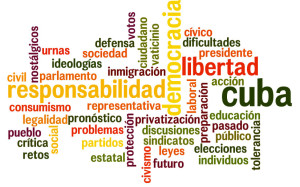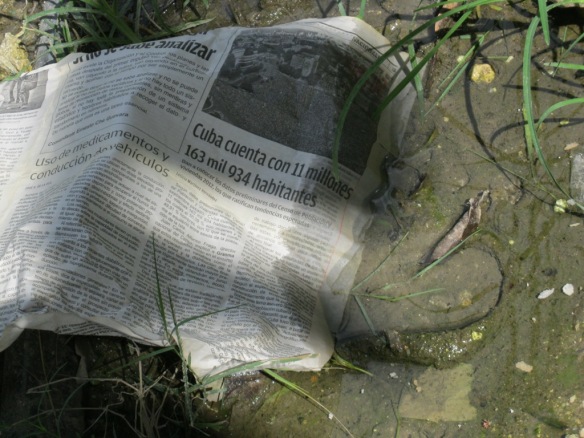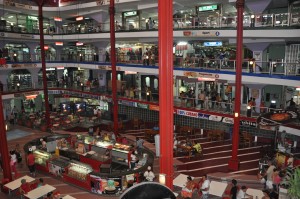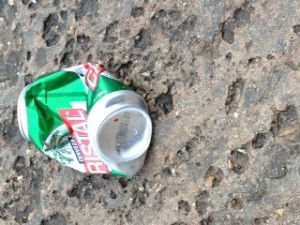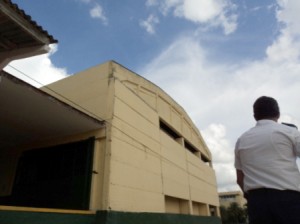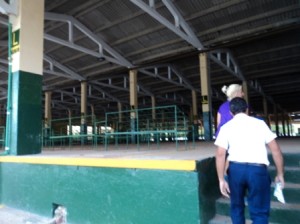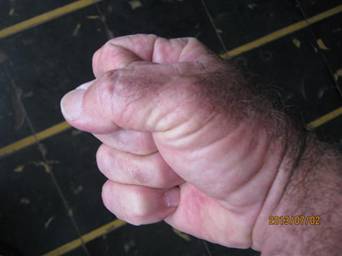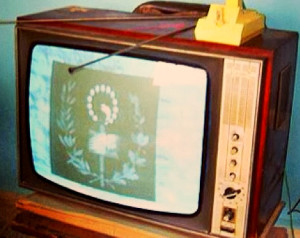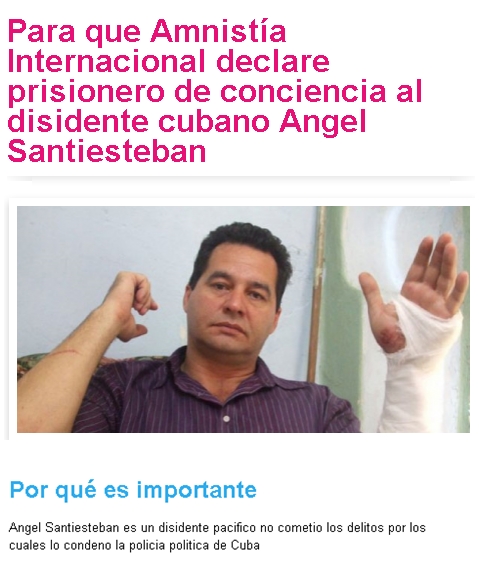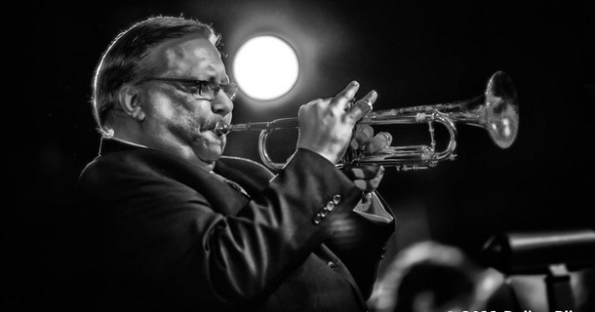 To speak about music in Cuba is an analogy. Cuba is the music. There are nice people, splendid weather, the smell of salty residue, and there’s always a reason to party. Other things, like the shrimp, tropical fruits, or beef are a luxury after 54 years of misrule. Cuba lacks essential liberties, but the music goes on.
To speak about music in Cuba is an analogy. Cuba is the music. There are nice people, splendid weather, the smell of salty residue, and there’s always a reason to party. Other things, like the shrimp, tropical fruits, or beef are a luxury after 54 years of misrule. Cuba lacks essential liberties, but the music goes on.
Fidel Castro tried to scrap the Sunday calls to retreat and replace them with arrhythmic marches calling for combat. The olive-green regime planned to transform music. To bury guaguancó, toque de santo, and jazz.
But he couldn’t. In addition to inventing parameters to measure the quality of a music, in the medias sent to censure the greats like Mario Bauzá, Celia Cruz, or such a Lupe, only because they chose to observe from the distance the ideological folly established in the island.
And the music, like poetry, doesn’t let you break. The trumpeter, pianist, and composer Arturo Sandoval (Artemeisa, 1949), knows this very well. In the flesh has lived the holy war that political and cultural commissioners, scribes and historians, unleashed in 1990 when he decided to move away from the Communist madhouse. According to official decree, Sandoval was to die.
It’s rained a lot since then. The times are different. It’s been 24 years, indignant Berliners in the night demolished the wall that divided a same nation. Castro had to change politically. He spoke of socialism or death on a Havana platform, but from the sewers of power, sent especially trying to make negotiations with magnates of capitalism. He had to make accords. With the Catholic Church, the Afro-Cuban religion and with the selfsame devil. He cracked the social discipline and the fear was lost.
And in full view you could find blacks on a Cayo Hueso lot, in downtown Havana, between rounds of rum and dominos, daring to listen, at full volume, to Celia Cruz, Willy Chirino, Paquito D’Rivera. or A Time for Love, disco from 2010 by Arturo Sandoval. I was a witness.
On November 6th the Cuban trumpeter turned 64. On the 21st of this month his name may be announced in Las Vegas as the winner of a Grammy, the tenth in his career, to go along with 6 Billboard Awards and an Emmy. Although the most moving of all will be the Presidential Medal of Freedom, which will be presented to him in December by Barack Obama, along with fifteen other figures, including former President Bill Clinton, Oprah Winfrey, and Mexican scientist and Nobel Prize winner in chemistry Mario Molina. Despite his busy schedule, Arturo Sandoval graciously answered a questionnaire from Diario de Cuba.
Arturo, I was a boy when your name rang out with force on the island. I remember you taking complete notes on the trumpet while Irakere was making Bacalao with bread. Would you be able to summarize your artistic trajectory?
“I have to give thanks to God every day because in my career I’ve been able to accomplish my dreams. Look, coming from a dirt-poor family, where nobody was linked to art, and me having been able to be in the best situations and share with the musical greats. I think that sums up my trajectory: a dream come true.”
He doesn’t say it out of modesty, but another dream come true is the Arturo Sandoval Institute, proud institution of Cuban music on two shores.
Looking back, Arturo, what did Irakere mean to you?
“Before belonging to Irakere I was a member of the famous Cuban Orchestra of Modern Music. When I joined the orchestra, I was 16. I started at the bottom, being the sixth trumpet, until I made first. Without a doubt, the Cuban Orchestra of Modern Music has been one of or the best ever formed in Cuba, with musicians of great magnitude, like Luis Escalante, El Guajiro Mirabal, Paquito D’Rivera, Chucho Valdés, Guillermo Barreto and Juan Pablo Torres, among others. I and some of these latter would form the group Irakere. To me, Irakere was a source of inspiration. The combination of rhythms that we could make gave new sounds to Cuban music. Through Irakere we had the chance to make ourselves known throughout the entire world, including winning a Grammy.”
Was Dizzy Gillespie the musician that influenced you most?
“Definitely. Dizzy has influenced me the most, and not just as a musician, also as a person and friend. We struck up a great friendship, we got to be like father and child. His teachings have been and continue being standards to follow in my life. I’ve had other musicians who’ve influenced my professional life such as Duke Ellington, Clark Terry and Clifford Brown, among others. The list would be unending, for I’ve also had classical influences like Rachmaninov, Ravel and many more.”
Your records arrive on the island on flash memory or pirated CDs. I know a DJ in Carraguao who, for 10 CUC, will copy your discography. How do you feel, knowing that despite censorship, Arturo Sandoval stays alive in the memories of many compatriots?
“It’s very sad to think that somebody has to sneak around to buy a record by an artist from his own country, that my music is forbidden and that in the land where I was born and continue to love, nobody can hear it. I feel proud that my compatriots want to hear my music, but at the same time I’m saddened that they have to hide out to do so. It’s sad that the music of a lady like Celia Cruz or a Willy Chirino and many more have to be listened to in the shadows, as if it were a crime. This shows not only political ineptitude, but also social and cultural incapacities of this regime.”
In Cuba, some criticized your opposition at the performance of Juanes in the Plaza of the Revolution in 2009. Do you still maintain that while democracy does not exist in Cuba, all cultural interchange is propaganda for the communist autocracy?
“I continue to hold the same opinion. I believe that cultural exchange cannot be one-sided. If Juanes could play in the Plaza of the Revolution and was received with fanfare, why can’t Gloria Estefan, Willy Chirino, Andy García and others — including myself — do the same? Stopping off in the Plaza of the Revolution and freely expressing our feelings through music. The obsolete regime of the Castros is afraid, and by that I don’t mean of cultural exchange. They’re afraid we’ll speak before the people and might say that which Juanes and others did not say when they had that opportunity: the truth of what this communist regime represents and has represented for 54 years.”
Would you support an authentic cultural exchange, political or sporting where the Cubans from both shores might be able to offer concerts, games, or debates in their country without permission from the regime? With the Castros in power, do you see yourself giving a concert in the Karl Marx theater or in a plaza in your native Artemisa, now a province?
“Without the Castros and with a democratic government, I suppose so. With the Castros and without democracy, NO.”
Do you believe the shipwreck of the national economy has reduced the quality of Cuban music?
“There is a lot of talent in Cuba. Cuba has always been an inexhaustible source of musical talent, with and without communism. But look, since the triumph of the Revolution there aren’t specialized houses where a musician might go to buy an instrument or a music book. Nothing. Luckily, in Cuba music grows wild, but it’s sad that a person who wants to study music should have these kinds of limitations, not a single place to go and buy a book with staves.”
When you lived in Cuba, the people spoke against Fidel Castro, muttering in their living rooms. Now no. In many places they carry on about the malfunctioning of the government. There are those who continue seeing the game from the bleachers, but cases like Robertico Carcassés’ happen. What kind of value do you place on the controversies and public criticisms against the regime that take place today among the intellectuals and also the everyday Cubans?
“I am proud of all of them and believe that it’s going to be the only form the world will come to know; that Cuba does not assent to continue being dominated by a group of inept opportunists and crazy people.”
Your opinion about the intention of Chucho Valdés to regroup the musicians of Irakere and offer a nostalgic concert.
“Chucho supports the communist regime in Cuba. I am a US citizen and I defend the liberty and democracy. Irakere is not just him, to be the authentic Irakere, he’d have to count on all the musicians who are alive. Speaking for myself, they won’t count on me.”
How do you see this post-mortem homage that they want to give to Bebo Valdés in the next Havana Jazz Festival?
“Bebo deserves all kinds of recognition, but in this case it’s a flagrant act of demagoguery and hypocrisy. Bebo was a bitter enemy of this system and never came back to Cuba because he did not agree with the regime. They had to have recognized this while he was alive, for this they’ve had enough time.”
What have you got new for the next few months?
“I just finished the score for three movies, in one of them with Andy García and Vera Farmiga in the protagonist’s role, and in another the actor Beau Bridges is appearing. I finished producing the last record of the great Peruvian singer and composer Gianmarco, it’s a jewel and it’s nominated for the 2013 Grammy as Best Album of the Year. I finalized another record, “A Century of Passion”, that I dedicated to the Fuente family, famous Cuban-American tobacconists, nominated at the Latin Grammys as the Best Tropical Album. I recently concluded a tribute to Armando Manzanero and now I’m starting two more projects for film scores, but I still can’t say their names while we’re in the midst of contract negotiations.”
Arturo, with your hand over your heart, are you coming back to a democratic Cuba one day, or do you believe it will continue being a utopia to whomever it’s worth the trouble of continuing to struggle?
“Hope is never lost, our country deserves something better. I believe it is not a utopia. It’s worth the trouble to keep struggling, I know that Cuba will shake off the dead weight of the Castros and their henchmen.”
Iván García
Video: Havana, 1985. Dizzy Gillespie and Arturo Sandoval in Night in Tunisia, composed by Gillespie en 1942.
Translated by Boston College Cuban American Student Association – Carlos Fernandez
16 November 2013
